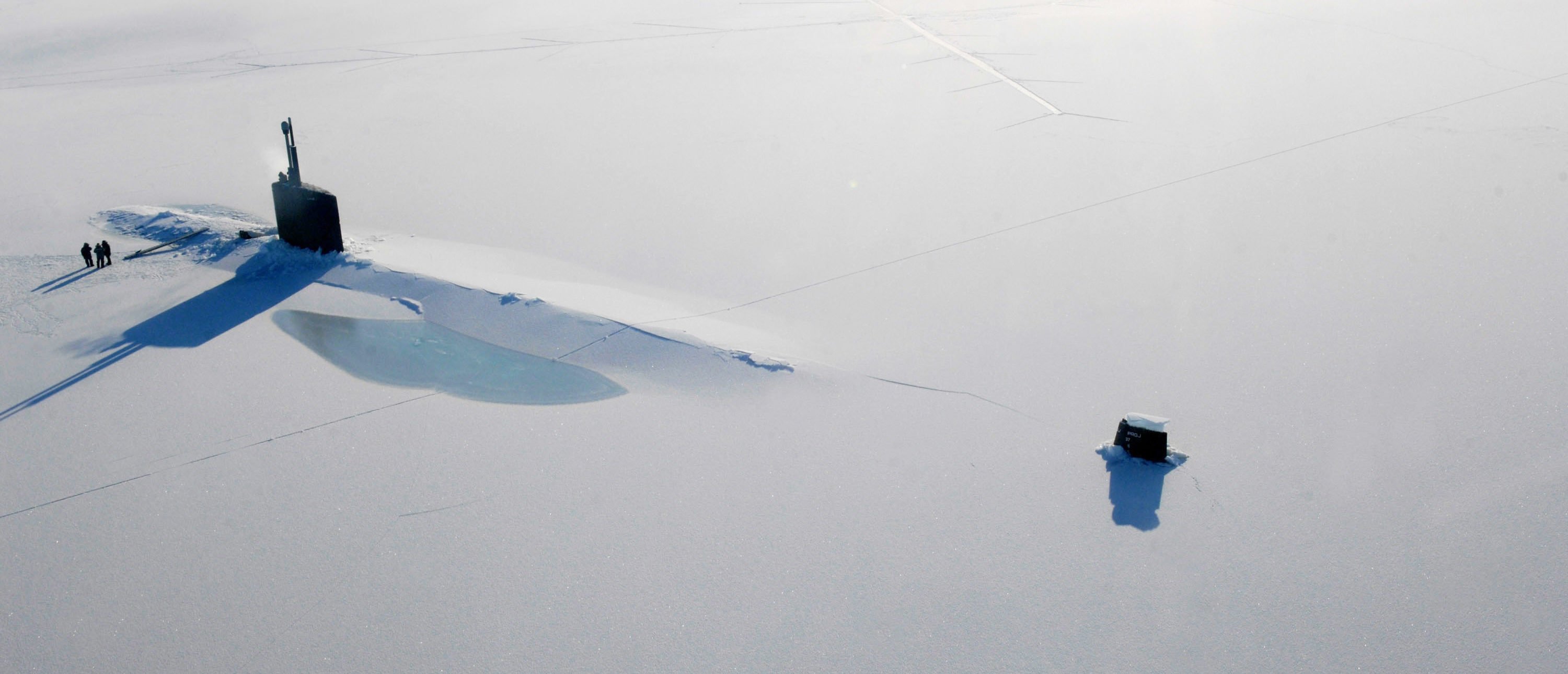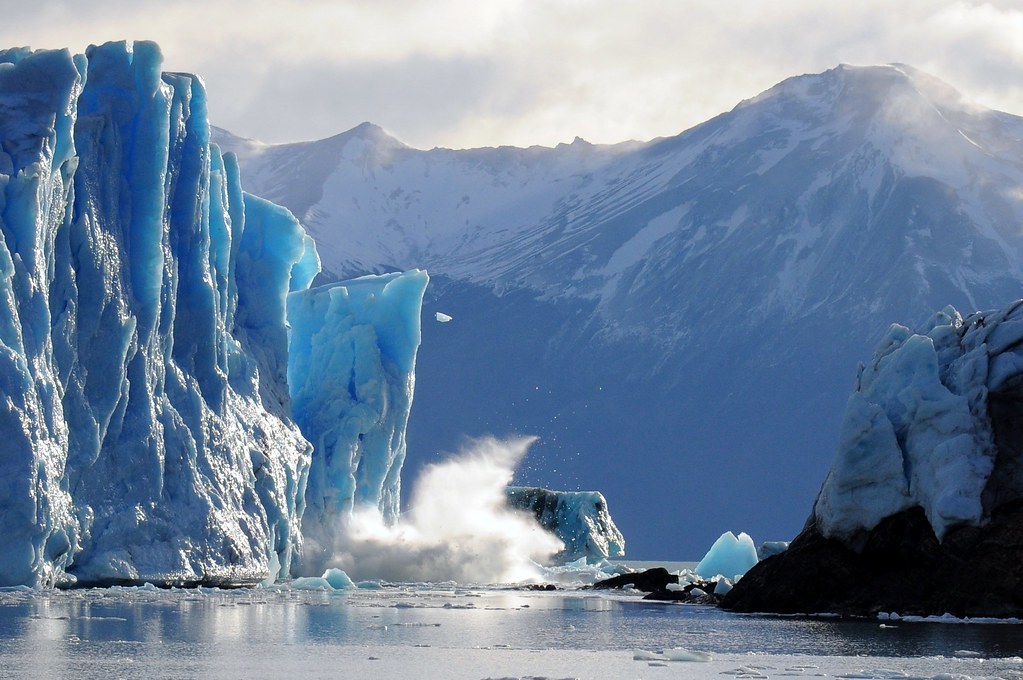
A Pentagon study warns climate change will destroy us.
Climate Change Could Lead to Global Catastrophe, Report Warns
Alexander Nazaryan / Yahoo News
WASHINGTON (February 27, 2020) — Climate change activism in popular culture may be associated with woke millennials and graying hippies, but some of the most dire warnings about global warming are coming today from national security professionals.
As the Trump administration has downplayed climate change as a national priority, it has increasingly fallen to members of the military and intelligence establishment to argue to keep focus and resources on climate change. On the whole, they treat global warming not as an environmental phenomenon or a moral imperative, but, rather as a force capable of altering the nation’s security outlook.
The calculus is, as it happens, more like simple math. “They see climate change as an impediment on their ability to fight future wars,” explains Michael Klare, author of the new book “All Hell Breaking Loose: The Pentagon’s Perspective on Climate Change.” Klare says that bases in the North and South Pacific prone to flooding, and missile interceptors in Alaska are in danger from melting permafrost, and the US could be hampered in potential conflict with Russia and China. “Their capacity to wage war is being degraded by climate change.”
That much is clear in a series of dire scenarios outlined in a new report by the Center for Climate and Security, a nonpartisan Washington think tank that considers global warming from a national security perspective. It depicts a volatile world where water-hoarding warlords and border-closing nationalists upend long-established security arrangements, plunging the world into chaos. In other words, the stuff of a Hollywood “cli-fi” thriller, only playing out in real time, in real life.
Like the new book by Klare, the report places the Pentagon squarely in the global warming fight. That fight has been largely abandoned by agencies like the Environmental Protection Agency and the Department of Interior, where political appointees with backgrounds in the oil and gas industries have roundly rejected the scientific consensus on climate change.
The nation’s military does not have that luxury, Klare argues, not when rising sea levels — caused by melting polar ice caps — threaten the Norfolk Naval Shipyard, one of the biggest naval installations in the world. Situated in coastal Virginia, it has been devastated by flooding nine times in the last decade, according to InsideClimate News.
“They’ve started taking real hits from climate change,” Klare says. “They know this is becoming extreme.” That notion is partly reflected in the climate proposal of former South Bend, Ind., Mayor Pete Buttigieg, one of two military veterans currently running for president (the other is Hawaii congresswoman Tulsi Gabbard).
Buttigieg has vowed to “increase the climate planning and regional readiness budget at the Department of Defense” and to “integrate climate security and resilience” at the Pentagon “by creating a senior climate security role in the Secretary of Defense’s office responsible for managing climate security risks.”
Those risks are real, said John Conger, director of the Center for Climate and Security, as he unveiled the report in a House of Representatives office building on Capitol Hill on Monday. He pointed to Tyndall Air Force Base in Florida, which was pummeled by Hurricane Michael in 2018, and Offutt Air Force Base in Nebraska, which found itself under water during flooding that devastated parts of the Midwest last year.
Relative to other anticipated climate change effects, however, these two incidents were relatively mild, if expensive nevertheless.
Written by a consortium that includes several retired flag officers, the report warns of a “catastrophic security future” unless carbon emissions are quickly, and radically curbed. The authors are unsparing in their warnings: “If we collectively turn our backs on these threats,” they write, “we stand on the precipice of some of the greatest, multidimensional security threats the world has ever seen.”

The Los Angeles-class submarine USS Annapolis after breaking through 3 feet of ice during an exercise in the Arctic Ocean. (Tiffini M. Jones/US Navy via Getty Images)
The release of the report in Washington follows a similar event last week in Munich, where the “World Climate and Security Report 2020” was made public. The product of an international group of military experts, the Munich report makes points similar to its Washington counterpart, suggesting that there is a growing consensus by military and national security leaders around the world that climate change can wreak havoc on geopolitical stability. The Munich report warned that, in particular, water shortages and food insecurity are looming threats. The extremists of Boko Haram, for example, have exploited Nigeria’s water shortages to their advantage.
To underscore the point, the Munich session at which the report was unveiled was titled, in part, “Apocalypse Now?”
Instrumental to both publications was Sherri Goodman, a former Pentagon undersecretary for environmental security and, before that, a staffer for the Senate Armed Services Committee. “In addition to causing headaches for US military planners, climate change directly threatens our troops and our capacity to defend ourselves in a dangerous world,” she wrote in an op-ed published with retired Army Gen. Gordon Sullivan last year (Sullivan helped author the new climate change report form the Center for Climate and Security).
Lyndon B. Johnson was the first president to have been warned of the national security implications of climate change. In some way, every president since has also been told of the geopolitical dangers of climate change, though not every president has taken that threat with equal seriousness.
President Trump often invokes national security as a strength of his administration, lavishing praise on “his” generals. But he has questioned their expertise in private, and has apparently ignored their warnings on climate change.
The Washington report that was published on Monday is based on the premise that, in the near term (that is, until 2050), the globe will continue to warm at a rate of 1-2 degrees Celsius per year, as greenhouses gases trap the sun’s heat within the Earth’s atmosphere, causing it to become steadily warmer. That scenario presents a “high-very high threat” to security around the world.
The authors posit, for example, that Africa would see “violent extremist groups bolster their numbers, and security threats spiral into nearby fragile areas” as a result of unrest called by epidemics made worse by climate change and “rapid loss of rural livelihoods.”
The near-term scenario for South America is one that is already hauntingly familiar: drought and diminishing crop yields driving migrant populations northward, in search of more clement regions. “Transnational criminal groups, and narcotics and human traffickers will likely take advantage of this growing destabilization, further straining local security institutions,” the authors write.
One of the conclusions of the report challenges the longstanding assumptions about climate change having a disproportionate effect on equatorial regions. “Northern, industrialized regions will also face significant threats at all levels of warming,” the report says. “In longer term, high emissions warming scenarios, these countries could experience catastrophic security risks, including high levels of migration and a breakdown of key infrastructure and security institutions.”

Broken ice in Lake Argentina below the Perito Moreno glacier in the Los Glaciares National Park.
In that longer term, the report estimates that temperatures could increase by 4 degrees Celsius. That’s close to the United Nations’ “nightmare scenario” known as RCP 8.5, which would see temperatures rise by 4.9 degrees Celsius by 2100. The current administrator of the Environmental Protection Agency, the former coal lobbyist Andrew Wheeler, has downplayed the likelihood of an RCP 8.5 scenario, though that scenario is predicated on nothing more radical than the global community remaining on the current course (there are some mainstream scientists who believe that scenario can still be avoided).
The Center for Climate and Security evaluates that a 4-degree rise by century’s end will spell a “catastrophic” threat, one that no region will avoid. North America, for example, will see “rising ethnonationalist, anti-democratic and isolationist views,” the report says, in what could be a veiled dig at Trump.
In addition, “great power competition over resources in the melting Arctic may become acute.” South America could see “violent conflict” as a result of prolonged droughts and exacerbated epidemics, while Asia would see the deterioration of “important military alliances and partnerships on which regional peace depends.” That peace has already been threatened in nations like Pakistan, which has been routinely pummeled by extreme weather events, and which is currently engaged in a water war with India.
“If we don’t come together to mitigate this threat, soon, American interests and security are on the line,” said a statement from Conger, the director of the Center for Climate and Security.
That’s not a controversial opinion in the scientific community. But it is not one shared widely by the current administration, which has repeatedly said that increased environmental regulation harms American businesses.
Asked if Wheeler, the EPA administrator with an exceptionally strong pro-industry record, had read the report, a spokeswoman for the agency said only that the “EPA is reviewing the report.” She declined to elaborate.
Alexander Nazaryan Is a National Correspondent for Yahoo News
Posted in accordance with Title 17, Section 107, US Code, for noncommercial, educational purposes.